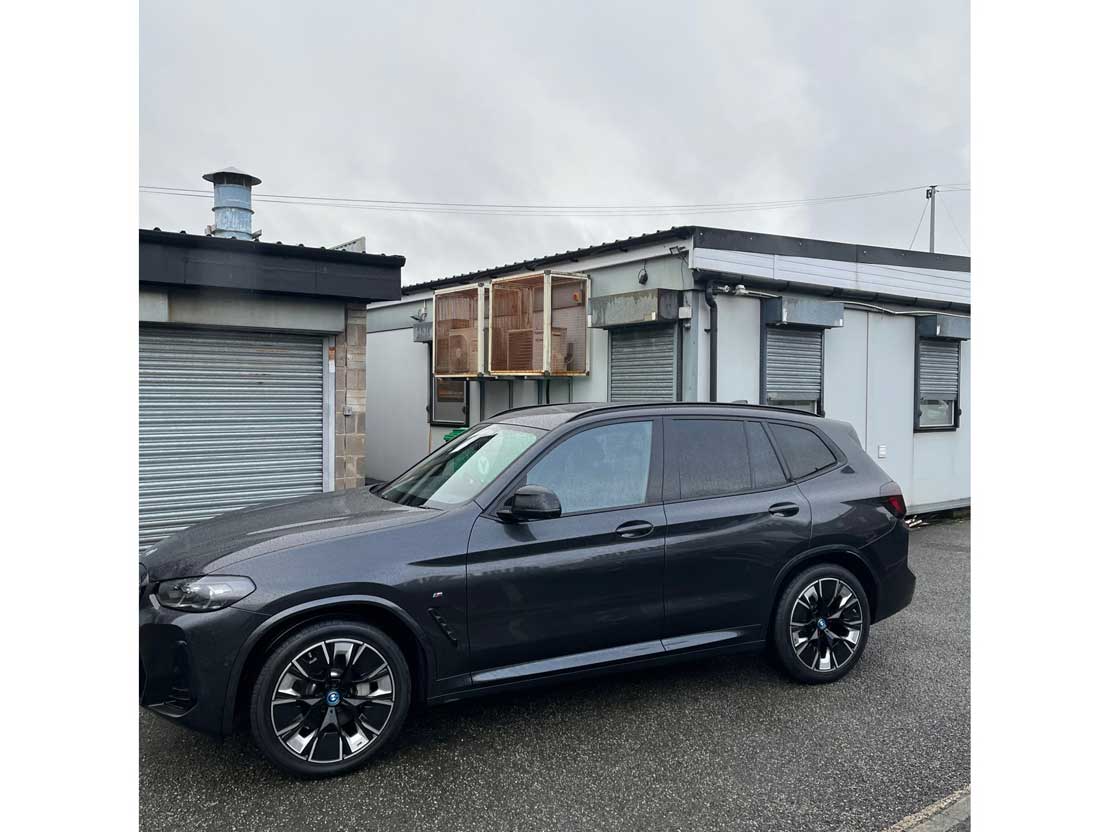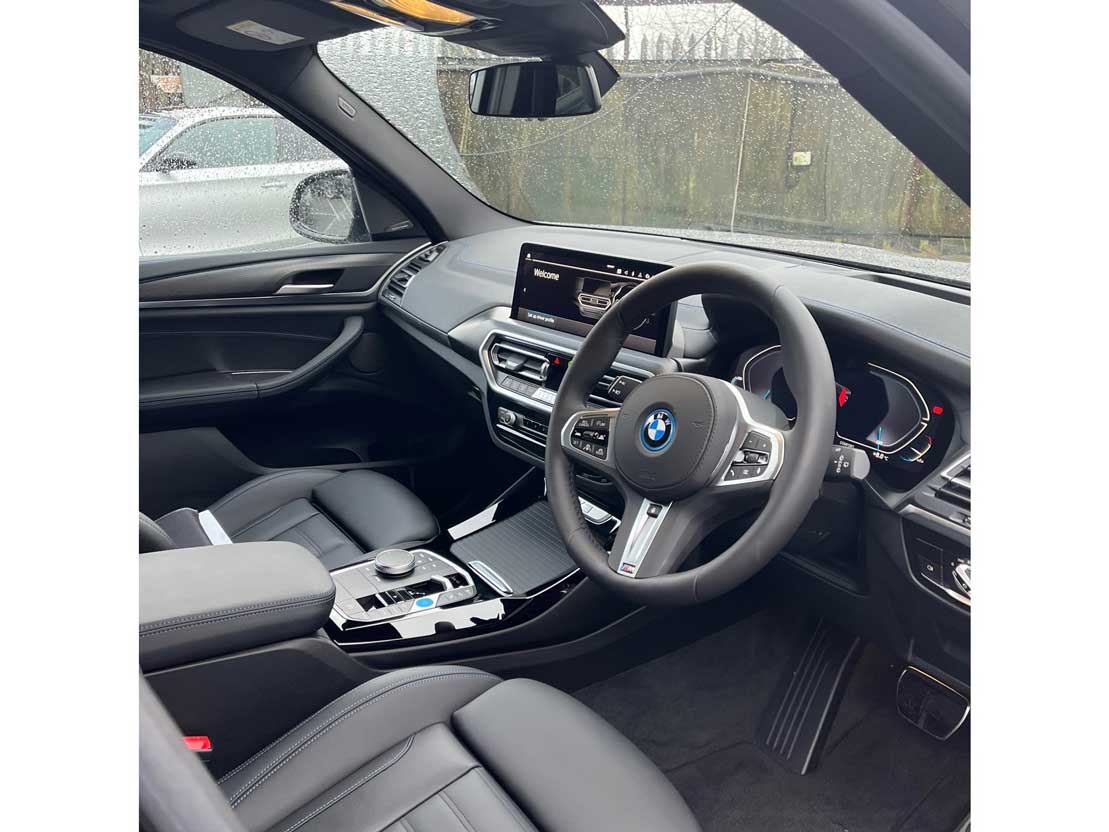
Mon-Fri 9am-5pm
Talk to our friendly electric car leasing experts now: 01942 910 001This website uses cookies to ensure you get the best experience. Learn more
Builders and Plumbers with a limited company - why you should lease an electric car through the business.

You should lease an electric car via your ltd company if you are a builder or a plumber
The EV news channels are awash this morning with headlines about the Polestar and Volvo relationship; is this coming to an end or is Polestar discontinuing? As reported on the Polestar website, the relationships will change so that Geely Sweden Holdings becomes the primary shareholder, with Volvo cars becoming a strategic partner for manufacturing, RnD and after sales.
.jpg)
Some news articles have reported on this as a sign of Volvo removing financial support and an effective termination/separation, as the Swedish manufacturer will no longer fund their partner amidst what appears to be a lack of profitability. However, Polestar are reporting this as a more natural progression, with the business aiming to “manage costs, drive higher margins and cashflow”.
Indeed, expected funding is set to be lowered to £1.3 billion until 2025, when the EV-only brand is expected to break-even. With the UK Government set to allow manufacturers to sell their EV credits under the ZEV Mandate, this may be a short to mid term solution in the UK.
But there is no evidence of the Polestar brand terminating; indeed this week (February 2024) has witnessed the Polestar 4 formally arriving in the UK. This electric SUV coupe is gaining notoriety for being a “car without a rear window” but is nevertheless a luxury single and dual motor option which will be a credible addition to the UK’s automotive market.
But demand for electrification is still very much there for our business / company drivers who are enjoying some significant advantages from transitioning their vehicles from petrol and diesel into battery format.
While the building profession, in particular plumbers and builders, are usually seen enjoying a van / commercial vehicle, for many successful companies there will be employees and directors utilising cars or pickup trucks. In the last few years, many in the building profession have been enjoying pickup trucks, as they are treated as commercial vehicles for taxation purposes so long as there is a payload of one tonne (see HMRC for more info) .
.jpg)
In being classed as the LCV, many plumbers and joiners have enjoyed the fixed taxable benefit of £3960 which as a 20% tax payer would be a yearly cost of £792 and for a 40% tax payer would be £1,584. In comparison to a car, this is a significant tax saving. And while a pickup, or lifestyle vehicle is rugged and complimentary to the profession, not every employee will necessitate this style of vehicle. And in some cases, a plumber or builder will need a 2nd vehicle to complement their van if there is private use or if they have a family.
So, why go electric?
We appreciate there is a lot of mixed news about BEVs and in many cases there are misnomers which are propagating a negative spin. To be clear, running an EV through your building company will be far more tax beneficial than a normal petrol or diesel option.
Both the business and the driver/employee will benefit in the arrangement. For a zero-emitting vehicle, the business can reclaim 100% of the finance rentals on the lease plus 50% of the VAT on the finance and 100% of the VAT on the maintenance aspect. For purchase style products, like Contract Purchase, the business can claim 100% of the vehicle cost under Capital Allowances. In all cases, speak to your accountant and tax advisor about the best route forwards for your business.

Investing in your charging infrastructure is beneficial for the business too. Any charge points you install are classed as plant and machinery for Capital Allowances (full expensing). And the good news is that the charging session for any drivers using company infrastructure is not subject to company fuel / private fuel taxation. With a fuel card on your company car, you are subjected to car fuel benefit which can be significant. With EVs, HMRC have confirmed that it is not fuel for tax benefits.
For directors and employees of the building firm, many will be aware of the taxation position situation surrounding their vehicles. Having a company car is not a free benefit and every month your salary will be deducted by the corresponding company car tax payment.
In the UK this is based on Benefit-In-Kind, which utilises a number of facets specific to the driver and the vehicle. Using the list price (or P11d) of the vehicle, any options the vehicle has and any car tax, you apply the relevant percentage (BiK) based on the car’s emissions.
The more polluting the vehicle is, the higher the percentage is. For an all-electric car, because it emits no CO2 at the tailpipe this is a nominal 2% for tax year 2023/24. In contrast, a petrol or diesel can be significantly more. And finally the driver’s income tax threshold is taken into account to complete the calculation. Essentially the employee will be 20%, 40% or 45% and this helps to determine the car tax exposure.

When you compare like for like examples on petrol v electric, you can quickly see the tax impact for the individual driver, as this can be hundreds of pounds a month differential. If financial prudence is your primary objective then an electric car should be at the top of the list.
And our local Wigan (Greater Manchester) business, working in the plumbing industry, recently added another to their fleet with the affable BMW iX3 SUV. Available since 2021, this option has been a stalwart of the UK’s personal and business electric car fleets. Based on the X3, but in lithium-ion format, this family-friendly EV has been immensely popular for us in 2023. But moving into 2024, expect the newer iX1 and iX2 to have a more significant impact.
.jpg)
In terms of the car shown, the BMW IX3-E ELECTRIC ESTATE 210kW M Sport Pro 80kWh 5dr Auto Pure Electric Vehicle, this is based on the following configuration:
- Sophisto Grey Metallic paint
- Vernasca leather - Black with blue contrast stitching
- Aluminium Rhombicle with Pearl Chrome
- 20" M aerodynamic alloy wheels in M bicolour style 890
- Mode 3 / Type 2 Charging Cable (Public Charging & home wallbox charger – Fast charging)
And how does the BMW iX3 perform?
The RWD has a 74 kWh usable battery which will offer 0 – 62 times of 6.8 seconds, 112 mph top speeds and 210 kW (or 282hp). Expect a combined winter range of 200 miles with warmer weather allowing for 270 miles.
On charging, the 11 kW AC max will allow 8 hour 0 – 100% charging times with the 155 kW DC maximum allowing 31 minute 10 – 80% times. A cargo volume of 510L is available with this car. It has a vehicle fuel equivalent of 131 mpg. You can tow 750 kg (unbraked) and 750 kg (braked). It also has no V2L or V2G capabilities.

Related articles
& guides

e-car lease work alongside these select finance companies:





e-car lease have a partnership and affiliation with:



Register & get new deals weekly
 Exclusive offers
Exclusive offers
 Electric-only deals
Electric-only deals
 Never miss out
Never miss out

Talk to one of our experts
01942 910 001 Email usLeasing


© Copyright 2025 e-car lease. All rights reserved. e-car lease is a trading name of CarLease (UK) Ltd, e-car lease is a credit broker and not a lender. We are authorised and regulated by the Financial Conduct Authority. Registered No: 706617. BVRLA Membership No. 1471. Registered in England & Wales with Company Number: 09312506 | Data Protection No: ZA088399 | VAT No: 200422089 | Registered Office: Kings Business Centre, Warrington Road, Leigh, Greater Manchester, WN7 3XG
Made by morphsites®














